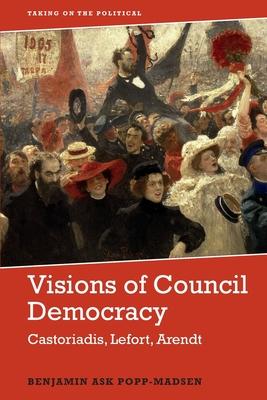Uncovering the neglected theories of the council system in the 20th century
This book examines the historical emergence of the council system in Russia and Germany by the end of the First World War, reconstructing the intellectual history of council democracy in 20th century political theory, and providing in-depth analysis of council democracy in the political thought of Cornelius Castoriadis, Claude Lefort and Hannah Arendt.
Popp-Madsen argues that council democracy can productively be interpreted through the prism of constituent power: the form-giving power of the people to decide on their own institutional forms of political co-existence. Whereas other interpreters of constituent power claim an unbridgeable gap between constituent power and constituted power, this book asserts that council democracy discloses a historically grounded way of institutionalising the constituent power. Council democracy, in this interpretation, becomes a way of controlling the constituent power without completely exhausting it, thereby giving the citizenry continual access to the powers of self-transformation, co-creation and constituent freedom.

Visions of Council Democracy: Castoriadis, Lefort, Arendt
Uncovering the neglected theories of the council system in the 20th century
This book examines the historical emergence of the council system in Russia and Germany by the end of the First World War, reconstructing the intellectual history of council democracy in 20th century political theory, and providing in-depth analysis of council democracy in the political thought of Cornelius Castoriadis, Claude Lefort and Hannah Arendt.
Popp-Madsen argues that council democracy can productively be interpreted through the prism of constituent power: the form-giving power of the people to decide on their own institutional forms of political co-existence. Whereas other interpreters of constituent power claim an unbridgeable gap between constituent power and constituted power, this book asserts that council democracy discloses a historically grounded way of institutionalising the constituent power. Council democracy, in this interpretation, becomes a way of controlling the constituent power without completely exhausting it, thereby giving the citizenry continual access to the powers of self-transformation, co-creation and constituent freedom.